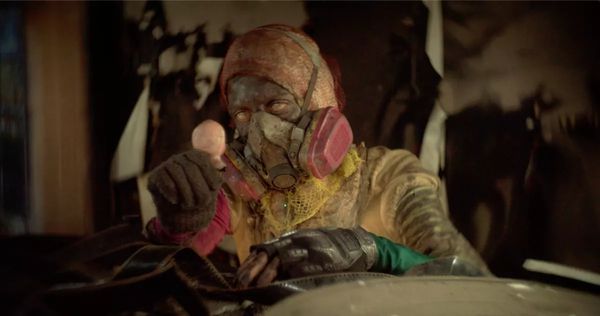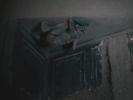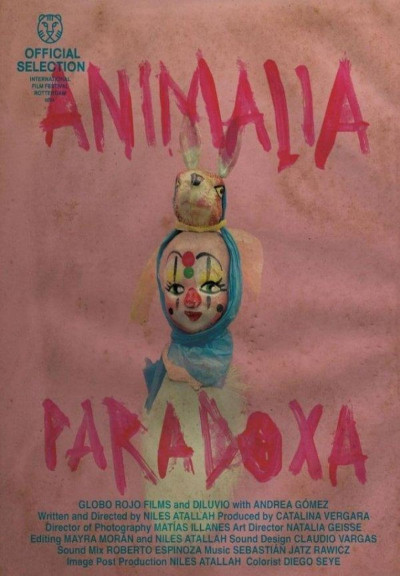Eye For Film >> Movies >> Animalia Paradoxa (2024) Film Review
Animalia Paradoxa
Reviewed by: Jennie Kermode

Ever since Threads – or, arguably, Dr. Strangelove – cinema has been presenting us with visions of what the world might look like after a nuclear war. Realistically, every scenario modelled shows zero survivors, but if there were to be some, it seems likely that their existence would be much, much stranger than anything we can imagine. The cultural, teratological and geographic consequences would be so vast as to make the little survivor communities of popular fiction absurd. Taking its cue from experiments in far future fiction, Niles Atallah’s inspired work, which screened as part of the 2024 Fantasia International Film Festival uses surrealist techniques, dance and even puppetry to tell a tale whose implications are vast and unlikely and yet which we can believe in.
We explore it in the company of a creature who, for practical purposes, has been dubbed Animalia by the production team, though we never hear her name. She seems unable to speak, and may not even have a functional mouth. Humanoid in shape but with a different sense of balance and much greater than usual flexibility, she makes her way through the ruins each day, scavenging, taking pieces of shell, broken dolls and other treasures back to her home, a simple affair made of plastic sheeting in a ruined building. There she repairs and rearranges them, seeming to enjoy this glimpse of beauty, this creative opportunity, though she will go on to give most away in trade.

Only one thing she treasures for herself, and that is film. An old wind-up viewer and a great deal of patience give her access to a world which might as well be fiction now. It is in this way that we learn about the bombs, and that she finds a connection with a lost ocean, a place which she will go on to dream of in fantastical, bleached-out black and white. The closest she can get to it is by collecting water, still available from a tap in a nearby ruin, and dragging enough of it home to fill a bathtub. There she can truly relax, her multicoloured, stained and ragged clothing peeling away to reveal iridescent skin.
There’s incredible world-building here. We don’t get an explanation for everything – we’re observing rather than being explicitly guided – but the film is so rich and detailed that it feels lived-in. The shattered landscape of broken concrete and twisted steel may be familiar, but a partially desiccated dead rat is the closest thing we’ll see to a familiar inhabitant of it. A blue-skinned woman walks along with a megaphone, preaching about the cause of the devastation, fragments of Revelations intercut with what might be folk memories. In one of the broken-ceiling rooms a figure hangs, alive, suspended by its hair, fed sweet things as if in tribute. In another, bodies entwine within a translucent, dusty sheet. A heavily textured string score adds to the ambience, interrupted periodically when some unseen thing clangs against a metal pipe.
Amidst all of this, what really stands out is how strange our world seems from a distance, those threads of it that remain. Whether or not Animalia’s ancestors were like us is uncertain. The rules are different here. There’s a sense of magic, as if logic itself had been distorted by the magnitude of the destruction, causality recoiling in outrage. Nonetheless, everything that we see follows a logic of its own. It is a film less concerned with speaking than feeling, and Atallah skilfully invites empathy. If all that remains is a dream, we can share it.
Reviewed on: 21 Jul 2024















